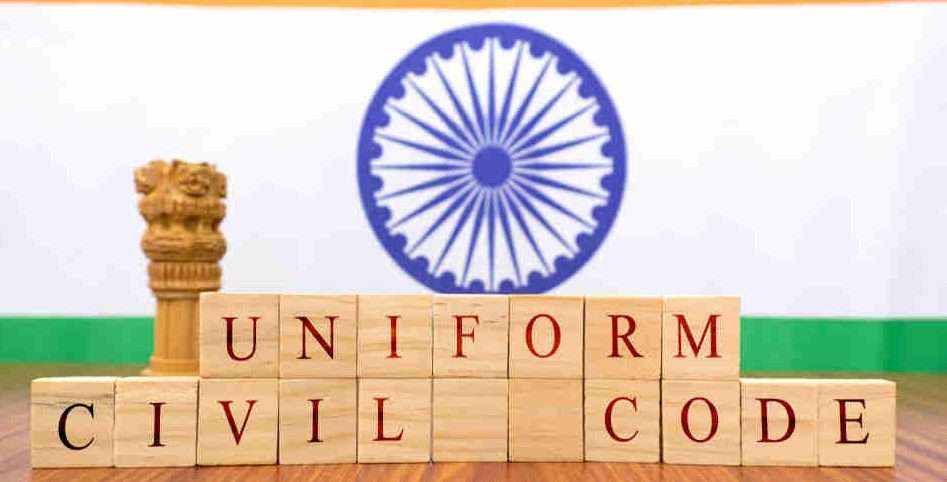Uniform Civil Code(UCC) 2023 – The ongoing strong debate

What is Uniform Civil Code (UCC)? A Uniform Civil Code (UCC) is a set of legal guidelines that would be equal for all spiritual communities in a country. It would cover subjects like marriage, divorce, inheritance, adoption, and associated problems. The idea is to replace the extraordinary personal legal guidelines primarily based on extraordinary non-secular agencies with a single set of legal guidelines that could practice by everybody. The current news on UCC: The Law Commission of India released a public observation searching for feedback on the Uniform Civil Code on 14th June 2023. The previous consultation paper on the Uniform Civil Code became issued by means of the 21st Law Commission in August 2018. The modern notification acknowledges the importance and relevance of the problem, prompting the 22nd Law Commission to revisit it. The Uniform Civil Code goals to create a standard set of legal guidelines for private matters together with marriage, divorce, adoption, inheritance, and succession. The proposed legal guidelines might be relevant to all citizens no matter their caste, gender, or religion. The Law Commission’s name for evaluations and remarks indicates a radical exam and attention of public opinion. The 5 years between the preceding and contemporary fee’s engagement highlights the importance and complexity of the Uniform Civil Code. The Uniform Civil Code intends to harmonize private legal guidelines across exceptional spiritual groups and set up a unified criminal framework. The Law Commission’s public word shows a dedication to inclusivity and equal treatment under the law for all citizens. The courtroom orders associated with the Uniform Civil Code have contributed to the renewed attention and importance given to this problem with the aid of the Law Commission. India’s Diversity: Currently, Indian non-public regulation is all fairness complex, with each religion adhering to its unique legal guidelines. Separate legal guidelines/ customs govern Hindus, Sikhs, Jains and Buddhists, Muslims, Christians, and followers of different religions. Moreover, there is diversity even within groups. All Hindus of us of aren’t ruled by using one law, nor are all Muslims or all Christians. For instance, in the Northeast, there are more than 200 tribes with numerous customary legal guidelines. The Constitution itself protects nearby customs in Nagaland. Similar protections are offered in Meghalaya and Mizoram. The exception to this rule is the kingdom of Goa, in which all religions have a commonplace regulation concerning marriages, divorces, and adoption. Constitutional position: Article 44 of the Constitution lays down that the nation shall endeavour to stable a UCC for citizens throughout the territory of India. Article 44 is some of the Directive Principles of State Policy. Directive Principles aren’t enforceable via the courtroom but are meant to inform and guide governance. Previous efforts of UCC: Shah Bano judgement: In 1986, the Supreme Court’s Shah Bano judgment for renovation was considered a primary step in the direction of UCC. However, it turned into nullification with the aid of the Parliament by passing an amendment to keep the repute quo. Incremental changes over the years: Incremental change has passed off over a long time. Hindu succession became reformed with the aid of Parliament in 2005, and Christian divorce rights have also been reformed in 2001. The courts have step by step affirmed women’s rights of protection, adoption, and so forth. In various judgments, strengthening reform in minority groups. In 2018, the 21st Law Commission underlined that the Uniform Civil Code is neither important nor ideal at this stage. It argued for reform of own family laws of each religion thru amendments and codification of sure elements to cause them to gender-simply. It in addition stated that cultural diversity can not be compromised to the quantity that our urge for uniformity itself turns into a motive for a risk to the territorial integrity of the kingdom. Need for UCC: 1. To promote national unity Historically, one of the factors that have stored India back from advancing to nationhood has been the life of personal laws primarily based on religion. These laws maintain the nation divided into watertight cubicles in many components of existence. A uniform regulation made applicable to all would promote national harmony. 2. Different personal laws are put to subversive use There were times of Hindus converted to Islam, as bigamy is a part of Muslim private legal guidelines in the country. 3. To promote gender justice A uniform civil code is needed for gender justice. The rights of ladies are generally limited below non-secular regulations, be they Hindu or Muslim. 4. Not in the domain of religious activities Matters together with inheritance, marriage, divorce etc. Do no longer need to do something with spiritual sports. Hence, any regulation on these elements might no longer amount to the infringement on religious freedom extended via Article 25. 5. The vision of constitution-makers The Constitution makers had an imaginative and prescient to enact UCC in future to have the same set of civil legal guidelines governing all irrespective of religion. Enactment of UCC is needed to fulfil this dream. Arguments against UCC: 1. Diversity cannot be compromised for uniformity The imposition of UCC could lead to overlooking the variety of Indian cultures, customs, ethnicity, languages, religious ideologies and so on. From north to south and from east to west, each state in India has a one-of-a-kind lifestyle and a specific outlook toward existence. 2. Violation of fundamental rights The ideas of marriage, talaq and polygamy are interwoven with the religious and cultural rights of Muslims. State intervention will be the violation of essential rights (Articles 25, 26, 29). 3. Constitution recognises the customary laws and procedures prevailing in NE states In the North Eastern States, the constitution thru the VI schedule recognizes the normal laws and tactics prevailing in their society. Hence, there can be sensible problems in the formulation in addition to the implementation of UCC. 4. Detrimental to communal harmony of India Perception of UCC as an encroachment on spiritual freedom is gaining momentum. In this context, many agree that UCC may be detrimental
Does India require a uniform civil code 2023 – A strong study

Theme: The Supreme Court of India argued for the need for a standard civil code in October 2015 and stated that “This cannot be allowed, else every religion will claim that it has the authority to rule certain issues as a matter of its law. What is Uniform Civil Code: The idea of having a single set of laws that would apply to all Indian people, regardless of their religions, is known as the “uniform civil code” in India. Countries that have adopted Uniform civil codes are Saudi Arabia, Turkey, Egypt, Malaysia, Nigeria, etc. The UCC bill represents an effort to carry out this objective. What makes Article 44 crucial: A unified civil code is required by Article 44 of the Indian Constitution, which is regarded as being important and disputed for several reasons. First of all, it aims to ensure that all Indian people are treated equally under the law, regardless of their religion and is seen as a fundamental concept of secularism and equality. Second, because it intends to replace the variety of personal laws already in force in India with a unified set of rules that apply to all residents, it is seen as a way of strengthening national unity. Finally, because it touches on sensitive subjects like religion and personal beliefs, it is seen as a very political and delicate problem. Despite the constitutional mandate, this has made it challenging for succeeding administrations to take action toward creating a universal civil code. History of Uniform civil code: The concept of a uniform civil code in India may be traced back to the colonial period when the British issued a series of laws aimed at codifying and reforming personal laws. Following independence, the idea of a uniform civil code was included as a directive principle in the Indian Constitution, with Article 44 saying that “the State shall seek to obtain for the citizens a uniform civil code throughout the territory of India.” Since then, the topic of a uniform civil code has been a source of dispute and debate throughout India. Benefits of Uniform civil code: There are several potential benefits to implementing a uniform civil code in India. Some of these include: Challenges in implementing uniform civil code: Conclusion: The issue of a uniform civil code in India is a complex and controversial one, with arguments both in favour and against its implementation. Supporters argue that a uniform civil code would promote equality, secularism, and national unity, while opponents argue that it would interfere with religious practices and cultural traditions. Implementing a uniform civil code in India would likely be a challenging process, due to the diversity of religious and cultural practices in the country, as well as the political and legal hurdles that would need to be overcome. However, if successfully implemented, it could bring about significant benefits, such as promoting equality and secularism, simplifying the legal system, and improving access to justice. Reference :https://www.thehindu.com/opinion/lead/india-needs-a-uniform-civil-code/article67050330.ece For more GD Topics : Web 3.0 – The New Decentralized Online Experience Innovation vs Invention – Which is strong?
